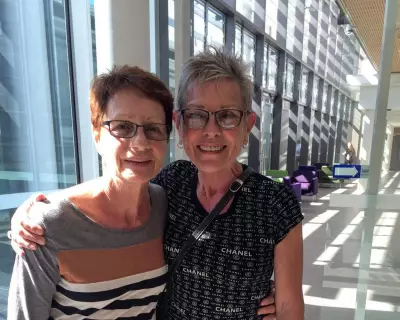
Thousands of junior doctors are preparing for a major five-day strike, with many facing an unexpected and devastating reality: unemployment. This comes despite the National Health Service grappling with chronic staff shortages across the country.
The Doctor Who Can't Get a Job
Dr Jacob McSweeney, a 25-year-old from Lancaster, embodies this crisis. Having completed his initial two years of foundational training within the NHS, he now finds himself largely jobless, relying on irregular temporary shifts to make ends meet. He is one of an estimated 20,000 young doctors trapped in a severe 'bottleneck' within the NHS training pipeline.
The core of the issue lies in the transition to speciality training. After their first two years post-university, doctors must secure a speciality training post to progress towards becoming a consultant—a journey that can take eight years. However, there is a catastrophic imbalance between applicants and available positions.
"I haven’t been able to get a locum shift for two weeks and there’s no guarantee I’ll be able to pay my rent at the end of the month," Dr McSweeney told the Mirror. "I’ve been doing this since August and for the first few months the uncertainty was genuinely terrifying. There are so many patients needing to see doctors and I’m sat at home desperate to work."
A System in Crisis
This year, the scale of the problem became starkly clear. There were over 30,000 applicants competing for just 10,000 training places at this critical two-year stage. This influx includes many international doctors, leading to calls from UK-trained medics like Jacob for a job guarantee for those who have already given two years of service to the health service.
For those who don't secure a training place, the typical fallback is locum work—covering for absent colleagues. Yet, with such a surplus of doctors at this career stage, even these shifts are becoming scarce. The British Medical Association (BMA) cites this employment bottleneck, alongside long-standing pay disputes, as a key reason for the five-day walkout commencing at 7am on Friday.
The emotional toll on these healthcare professionals is profound. "I’ve given the last two years of my life to the NHS and now find I haven’t got a job. It’s like a punch to the stomach," Dr McSweeney expressed. He confessed that the constant struggle is causing him to question his future in medicine, asking, "Why would anyone want to continue in a profession that doesn’t feel valued?"
Pay Disputes and Government Response
The BMA's demands extend beyond the employment issue. The union is calling for a commitment to increase pay by 26% over the next few years to reverse what it describes as significant pay erosion since 2008. According to the BMA, using the Retail Price Index (RPI), real-terms salaries for resident doctors have fallen by a fifth.
The government, which prefers the Consumer Price Index (CPI) that excludes housing costs, contends that average salaries have decreased by 5% since 2008. Health Secretary Wes Streeting has pointed out that by any measure, doctor pay has been increasing in real terms recently, including a 5.4% deal for 2025/26.
While a ten-year NHS plan published earlier this summer pledged an extra 1,000 training places by 2028, for the 20,000 doctors like Jacob currently in limbo, this future promise offers little immediate solace. The strike action, expected to lead to thousands of cancelled treatments, highlights a deepening workforce crisis that threatens the very foundation of the NHS.






